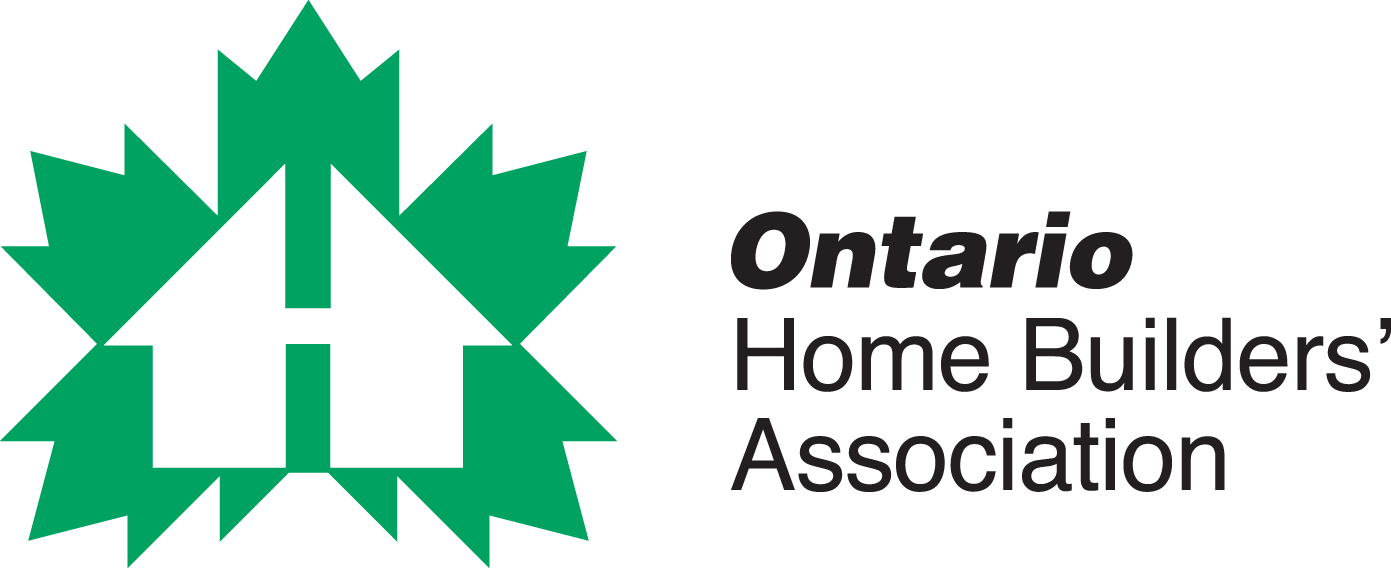By Ted McIntyre
Meet Your New CEO
Scott Andison arrives with an ideal mix of management and advocacy experience—and a plan for the future
After an eight-month search whittled potential Chief Executive Officer candidates down to a handful, and the interviews were complete, the decision for the Ontario Home Builders’ Association board was clear and unanimous: Scott Andison was their man.
OHBA’s April 15 announcement highlighted some of the Powassan, Ontario native’s previous experience, including his formidable background in the public and private sectors and not-for-profit organizations. He served key roles in the finance and education ministries within the Ontario government. His proficiency in policy development, stakeholder engagement and program implementation showcased his ability to navigate and influence public sector environments.
As president and CEO of the Federation of Rental-housing Providers of Ontario (FRPO), Andison honed his leadership skills, particularly with respect to advocacy and association management in the housing sector.
“The current challenges are significant in the home construction and renovation sector, but the opportunities to make a real impact are even greater,” he wrote in a LinkedIn post on his first day on the job.
“I’ve already begun to see how his mind works in understanding the intersection between the residential construction, government and municipal sectors to formulate good public policy and good arguments as to why policy should be this way versus that way in order to protect OHBA’s interests,” says Neil Rodgers, who will transition from his role as OHBA’s Interim CEO to a Strategic Advisor capacity over the next several months, working daily with Andison.
Will it take Andison long to get up to speed in his new digs? “No. He’s a quick learner,” Rodgers says. “Scott is a very cerebral, highly analytical guy. He’s the sort who listens and then processes a strategy.”
And what does the strategy entail for the 56-year-old resident of The Beaches in Toronto? Andison was happy to share.
OHB: When you’re not working, what are your hobbies?
SA: “One is computers. And I’m from Northern Ontario, so being in the outdoors is in my blood.”
Handyman skills are part of that northern stereotype.
“My dad actually worked in a hardware store and is still extremely handy at age 84. He taught me many carpentry skills, which I’m trying to pass on to my teenage son Markos.”
So why did you want this job?
“Coming from government, the private sector and industry associations, I saw the important job they all play in terms of helping to navigate government and business. When I worked with the FRPO, which was co-located with OHBA at the time, I got to work closely from time to time with Joe Vaccaro when he was CEO. I developed a real appreciation of how OHBA represents the local HBA’s but also the broad interests of the industry. A large portion of my skills and interests aligned with what they were looking for. This is my dream job.”
What do you think resonated with your interviewees?
“I think they were looking for someone who could manoeuvre effectively between the role of government relations and advocacy on behalf of members, as well as the member service delivery side. There are so many things happening within the housing space right now, including a demand not seen since post-WWII. I think they wanted someone who was a big-picture thinker and strong communicator with diplomacy skills. But I think they also wanted to see if I could be a change agent for the organization, and if I had the ability to respond positively to unanticipated things that might arise.”
So what makes a good advocate?
“I took the negotiation program at Harvard Law and the Leadership program at MIT. One of their repeated terms was BATNA—the Best Alternative To a Negotiated Agreement. That’s what advocacy is. Nobody is ever going to get everything they want. A bad advocate is someone who comes in and says you have messed this up really badly, so you need to fix it. The great advocates say, ‘I think I understand what you were trying to do. I think you didn’t execute it in the best possible way, and here’s a way that you can course-correct to help you get where you are trying to go.’
“I’ve had the benefit of sitting on the government side of the table, and as a civil servant advising government on policy and process, so I know how their decision-making works. Government has a very clearly defined planning horizon. They’re working from the time they were elected to the time they are looking to be re-elected. So when you’re advocating to a political decision-maker, you need to see how they’re going to be evaluating it within their planning horizon. How will it impact voters they’re going to rely on to get them back in office? So bring that information to them in a form they can digest and implement. And, through partnerships, bring in others who say the same thing. If government is hearing it from multiple sources, they’re more likely to see it as something they need to look at.”
You’ve been called cerebral—a good listener and analyzer of information.
“If somebody interprets me not talking a lot during a conversation or a meeting as me being disengaged, it’s completely the opposite. I started off as a consultant to the municipal sector and provincial government around building communities through restructuring—annexations, amalgamations, things like that. My specific expertise was property tax. I was always quick to correct, to provide what I thought was valuable information, not necessarily being as strategic as I could have. As I matured, I learned to sit back and listen. I like to assess how passionate someone is—not just the words but the way they’re saying it. And then I think, ‘OK, what’s the best path forward get to where we need to go?’—understanding that the other side needs to feel that they’ve achieved a win.”
You’re from a small town, Powassan. Does that provide any advantages?
“If I were from an organization that only dealt with GTA members, then that wouldn’t provide much benefit. But for the most part of my career I’ve been representing much broader bases than that—provincial, national. I wear it very proudly on my sleeve that I’m from a small town. I think it helps me connect with those outside of the GTA in the membership base that I’m not coming at it from a Toronto-centric approach. I also think my pace of approaching an issue may not be reflective of the pace that you might see in a large city like Toronto. I’m quite fine sitting back and rethinking something and taking a couple of runs at it, talking to as many people as I can to get a broader perspective. But I’ve also spent the past 30 years in the Toronto landscape, so I can appreciate both sides.”
What are your thoughts on the proposed membership fee increase?
“Anyone coming into a role like this has a bit of runway to ask a lot of naive questions and maybe offer a different perspective. The adjustment of the fee model is a perfect example. ‘Let’s walk me through your thinking again. What are the options?’ It invites the opportunity for a potential reset—not in the objective, just in our journey there. Or maybe it confirms that we’re already on the right path. It’s clear that there needs to be a review of the fee model, but what it will look like is not set in stone.”
Is hiring more staff part of the plan?
“Absolutely. We have to determine exactly what we need to deliver and then look at the resources required to do that. I had the opportunity to attend the planning meeting for the executive officers and members of their board and it was really insightful. We walked away with three priorities. All agreed OHBA needs to further its investment in government relations and advocacy. There are so many things going on in the industry and we must have the capacity to respond in the way our members deserve. So we’ll need a mix of staffing and other resources. There’s also strong support for great communications and events. Our hires need to be responsive and they need to be integrated into other things like our advocacy agendas. And then there’s the education and training side. It’s about getting the right balance.”
How does OHBA reach its potential of being the go-to voice for residential construction with elected officials?
“First is demonstrating on a daily basis that we have a committed membership base, which means that we speak on behalf of the whole industry. Second is building the relationship with government so that we become a trusted advisor. It’s not just the association’s role of publicly saying, ‘Government’s got this one wrong and here’s why we don’t like it.’ You have to provide recommendations to get back on track. But you also have to get to the point where you have people in government—be it on the civil service side or political side—who pick up the phone and say, ‘Hypothetically, if we were looking to do something like X, where would your membership be on this?’ Once you get to the point where they trust you to provide that expert advice, you’re adding real value to the membership by showing your ability to help affect informed policy.”
Your LinkedIn page notes your passion for leveraging technology to promote system-level thinking. How do you plan to leverage it for OHBA?
“Information has been an important tool in everything I’ve done. For me, evidence-based advice is the highest value of service product that an industry association can deliver. So it is going to be vital for the association to access comprehensive and current data and model it—that is, how we pose different scenarios and different questions to the data to best describe what we think might happen. I’ll use Bill 185 as an example. If we had access to comprehensive near-real-time data, we could have said, ‘Premier, this is what the impact will be, and we don’t think this is the impact you were seeking with this legislation.’ That is what an industry association should be doing. I want to re-examine access to better information and tools for us to be able to provide that analysis. I treat this very much as an investment—not simply in an expense. I think this is a cornerstone of what this association was founded to do.”
Become a member of the Ontario Home Builders’ Association.

